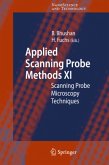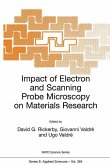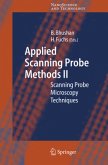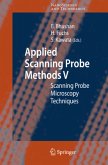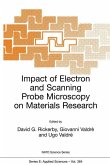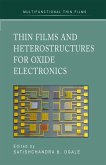From materials science to integrated circuit development, technology is moving from the microscale toward the nanoscale. As technology grows tinier, there is new emphasis on understanding the effects of surfaces and near-surfaces on the properties of materials at the nanoscale. This book reviews the fundamental physics underlying innovative techniques for analyzing these surfaces and near-surfaces.
Modern science and technology, from materials science to integrated circuit development, is directed toward the nanoscale. From thin films to field effect transistors, the emphasis is on reducing dimensions from the micro to the nanoscale. Fundamentals of Nanoscale Film Analysis concentrates on analysis of the structure and composition of the surface and the outer few tens to hundred nanometers in depth. It describes characterization techniques to quantify the structure, composition and depth distribution of materials with the use of energetic particles and photons.
The book describes the fundamentals of materials characterization from the standpoint of the incident photons or particles which interrogate nanoscale structures. These induced reactions lead to the emission of a variety of detected of particles and photons. It is the energy and intensity of the detected beams that is the basis of the characterization of the materials. The array of experimental techniques used in nanoscale materials analysis covers a wide range of incident particle and detected beam interactions.
Included are such important interactions as atomic collisions, Rutherford backscattering, ion channeling, diffraction, photon absorption, radiative and nonradiative transitions, and nuclear reactions. A variety of analytical and scanning probe microscopy techniques are presented in detail.
Modern science and technology, from materials science to integrated circuit development, is directed toward the nanoscale. From thin films to field effect transistors, the emphasis is on reducing dimensions from the micro to the nanoscale. Fundamentals of Nanoscale Film Analysis concentrates on analysis of the structure and composition of the surface and the outer few tens to hundred nanometers in depth. It describes characterization techniques to quantify the structure, composition and depth distribution of materials with the use of energetic particles and photons.
The book describes the fundamentals of materials characterization from the standpoint of the incident photons or particles which interrogate nanoscale structures. These induced reactions lead to the emission of a variety of detected of particles and photons. It is the energy and intensity of the detected beams that is the basis of the characterization of the materials. The array of experimental techniques used in nanoscale materials analysis covers a wide range of incident particle and detected beam interactions.
Included are such important interactions as atomic collisions, Rutherford backscattering, ion channeling, diffraction, photon absorption, radiative and nonradiative transitions, and nuclear reactions. A variety of analytical and scanning probe microscopy techniques are presented in detail.


